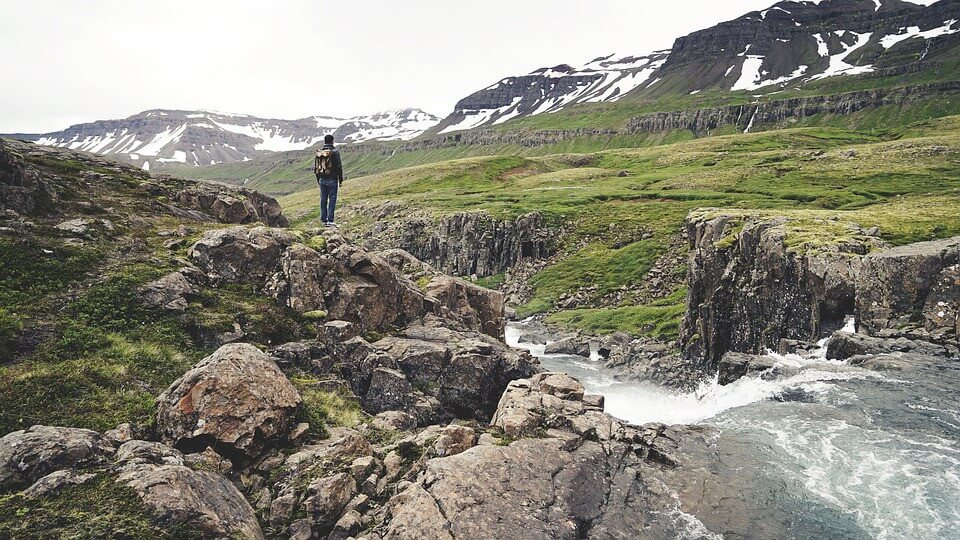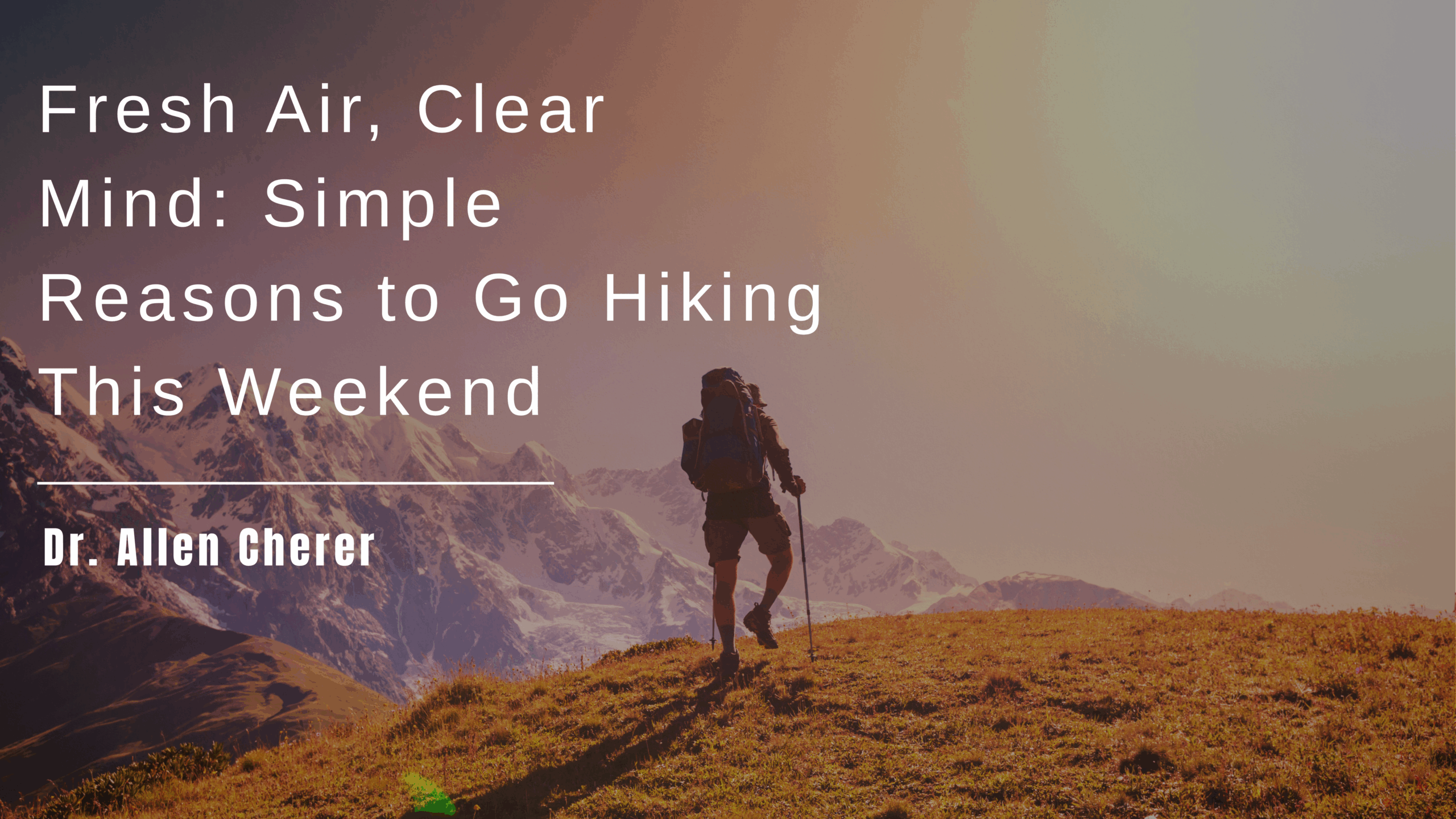In a world filled with constant notifications, traffic jams, and endless to-do lists, the idea of disconnecting can feel like a luxury. Yet sometimes, the best therapy doesn’t come in a bottle or on a screen — it’s found on a dirt path surrounded by trees, under an open sky. Hiking, one of the simplest and most accessible outdoor activities, offers a unique way to recharge both body and mind.
Whether you’re an avid adventurer or a casual weekend explorer, the benefits of hiking go far beyond physical fitness. From boosting your mood to sharpening your focus, stepping into nature provides a reset button that modern life rarely offers. So lace up your boots, pack some snacks, and discover why a hike this weekend might be exactly what your mind and body need.
1. Hiking Clears the Mental Clutter
It’s no secret that our minds are often overloaded. Between work deadlines, social obligations, and the constant buzz of digital life, we rarely allow ourselves a moment of true quiet. Hiking, however, forces you to slow down — not in a passive way, but in a way that reconnects you with your surroundings.
As you walk along a forest trail, your senses awaken. You notice the crunch of leaves beneath your boots, the scent of pine, the play of sunlight through the trees. These natural stimuli gently pull your attention away from internal chatter. Psychologists call this phenomenon “soft fascination” — a state where your mind rests while still being engaged. Unlike scrolling through social media or watching TV, which overstimulates the brain, hiking allows mental recovery and helps restore focus.
When you reach the summit or simply pause to take in a view, it’s as if the world narrows down to what truly matters. The worries that once seemed so heavy begin to fade into the background. That’s the power of nature: it gives your mind space to breathe.
2. It’s an Instant Stress Buster
Multiple studies have shown that spending time in nature reduces levels of cortisol, the body’s primary stress hormone. The rhythmic movement of walking, combined with fresh air and green surroundings, triggers a relaxation response that helps lower blood pressure and calm the nervous system.
Unlike indoor workouts that can sometimes feel rushed or pressured, hiking sets its own pace. You don’t have to compete with anyone or follow a timer. You move how you want, stop when you like, and take in the scenery around you. This self-paced movement encourages mindfulness — the simple act of being present — which is one of the most effective ways to combat anxiety and stress.
Even short hikes can have noticeable effects. A 20-minute walk in the woods or a local park can significantly reduce feelings of tension and fatigue. Over time, making hiking a weekend ritual can improve overall resilience to daily stressors.
3. Hiking Boosts Creativity and Problem-Solving
Ever notice how your best ideas often come when you’re away from your desk — maybe while showering, walking, or daydreaming? That’s not a coincidence. When you hike, especially in a peaceful natural setting, your brain enters a more relaxed, diffused mode of thinking. This state enhances creativity and helps connect ideas in new ways.
A study from Stanford University found that walking in nature can increase creative output by up to 60%. Another report from the University of Utah showed that people who spent four days disconnected from technology and immersed in nature performed 50% better on creative problem-solving tasks.
If you’re stuck on a project, struggling with a decision, or feeling mentally blocked, a weekend hike might be just the reset you need. Sometimes, clarity doesn’t come from thinking harder — it comes from stepping outside.
4. It Strengthens Your Body — Gently
Of course, one of the most obvious benefits of hiking is physical fitness. But what makes hiking special is how adaptable it is. You don’t need to be a marathon runner or a gym regular to enjoy it. Trails come in all shapes and difficulty levels, from flat, scenic walks to steep mountain climbs.
Hiking engages multiple muscle groups: your legs, core, and even your arms if you use poles. It improves cardiovascular health, balance, and endurance — all while being low-impact compared to running on pavement. The uneven terrain also builds stabilizing muscles that don’t get as much attention in typical workouts.
Plus, it doesn’t feel like exercise in the traditional sense. The changing scenery, fresh air, and sense of exploration make the effort feel rewarding rather than repetitive. You’re not just burning calories — you’re gaining experiences.
5. It Deepens Your Connection with Nature
Many of us live our lives disconnected from the natural world. We move from one climate-controlled environment to another, rarely feeling the wind, soil, or sunlight in any meaningful way. Hiking helps bridge that gap.
When you spend time on a trail, you begin to notice things you’d normally overlook — the sound of birds calling to each other, the way moss grows on shaded rocks, the scent of earth after rain. These small moments foster eco-awareness and gratitude for the planet we inhabit.
Over time, this connection can inspire more sustainable habits. People who hike regularly often develop a stronger desire to protect natural spaces and reduce their environmental footprint. Hiking reminds us that we’re part of something bigger — a living ecosystem that depends on balance and respect.
6. It’s a Social (or Solitary) Joy
One of hiking’s greatest strengths is its flexibility. You can do it alone for solitude and reflection, or with others for connection and shared adventure.
Solo hikes provide a rare opportunity to be fully present with yourself. Away from distractions, you can think deeply, set intentions, or simply enjoy the quiet. Many hikers describe solo outings as meditative — a form of moving mindfulness that strengthens self-awareness and emotional balance.
Group hikes, on the other hand, can strengthen bonds. Sharing a trail fosters natural conversation, teamwork, and laughter — whether you’re helping each other over rocky patches or celebrating at the summit. It’s a way to connect without screens, where relationships deepen organically through shared experience.
Whichever you choose, hiking has a way of fulfilling your social or solitary needs in the most natural way possible.
7. Hiking Improves Sleep and Energy Levels
If you often feel tired but have trouble sleeping, hiking might help reset your natural rhythms. Exposure to daylight, especially morning sunlight, helps regulate your body’s circadian rhythm — your internal clock that controls sleep-wake cycles.
Physical exertion also promotes better-quality sleep. Unlike indoor workouts under artificial lighting, hiking combines movement with natural light exposure, which signals your brain to produce melatonin at night. As a result, many hikers report falling asleep faster and waking up more refreshed after a day on the trail.
Additionally, spending time outdoors boosts energy. It might sound paradoxical, but gentle physical activity in nature often leaves you feeling more energized than before. That’s because time outside enhances oxygen intake, circulation, and mood — all of which contribute to that post-hike glow.
8. It Cultivates Gratitude and Mindfulness
In our fast-paced lives, it’s easy to take things for granted. Hiking naturally encourages a slower, more appreciative mindset. As you move through nature, you start noticing small wonders — the intricate patterns on a leaf, the sound of running water, the way sunlight filters through the canopy.
These observations ground you in the present moment, nurturing mindfulness. You begin to appreciate simple joys and realize how much beauty exists outside the digital world. Many hikers describe feeling a sense of awe and humility — emotions that have been linked to greater life satisfaction and lower stress.
Even brief hikes can shift your mindset from “doing” to “being.” And sometimes, that shift makes all the difference.
9. It’s Easier to Start Than You Think
You don’t need fancy gear or an expensive destination to start hiking. A local park, nature preserve, or even a city trail can offer a refreshing escape. All you really need is a comfortable pair of shoes, some water, and a sense of curiosity.
Here are a few quick tips to get started:
-
Start small. Choose beginner-friendly trails under 3 miles and build up gradually.
-
Check the weather. Dress in layers and pack accordingly.
-
Stay hydrated. Always carry enough water — more than you think you’ll need.
-
Leave no trace. Respect the environment; pack out what you bring in.
-
Enjoy the journey. The goal isn’t distance or speed — it’s connection and calm.
Once you make hiking a habit, you’ll find it becomes less of an activity and more of a lifestyle — a weekly ritual that grounds you and renews your energy.
10. A Simple Step Toward a Clearer Mind
At its core, hiking is beautifully uncomplicated. It’s about putting one foot in front of the other and allowing nature to do the rest. In a world that thrives on busyness and noise, the trail offers stillness. It reminds us that peace isn’t found by escaping life — it’s found by returning to what’s natural and essential.
So this weekend, leave your screens behind. Find a nearby trail, even if it’s just a short loop through a local park. Breathe in the crisp air, listen to the rustling leaves, and let your thoughts wander freely. You might just find that the clearest thinking happens when you’re surrounded by trees instead of technology.
Because sometimes, all it takes to clear your mind is a little fresh air — and a good walk in the wild.

